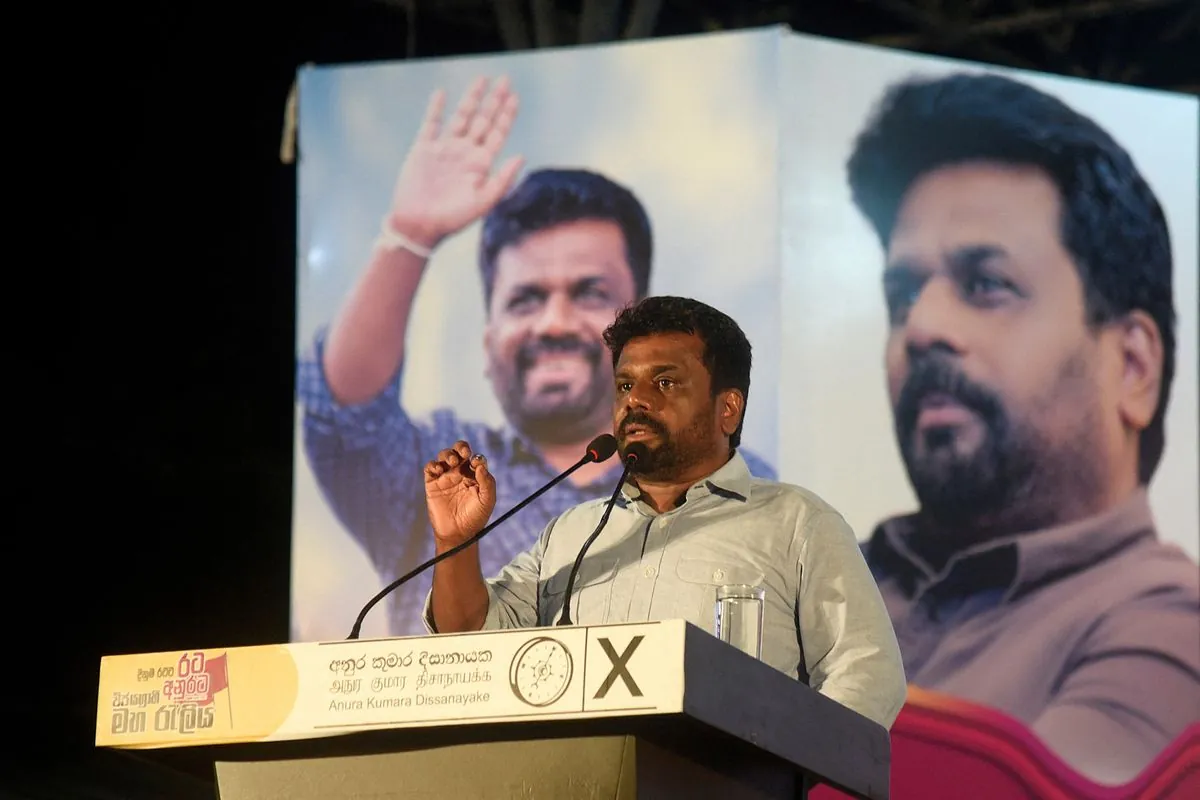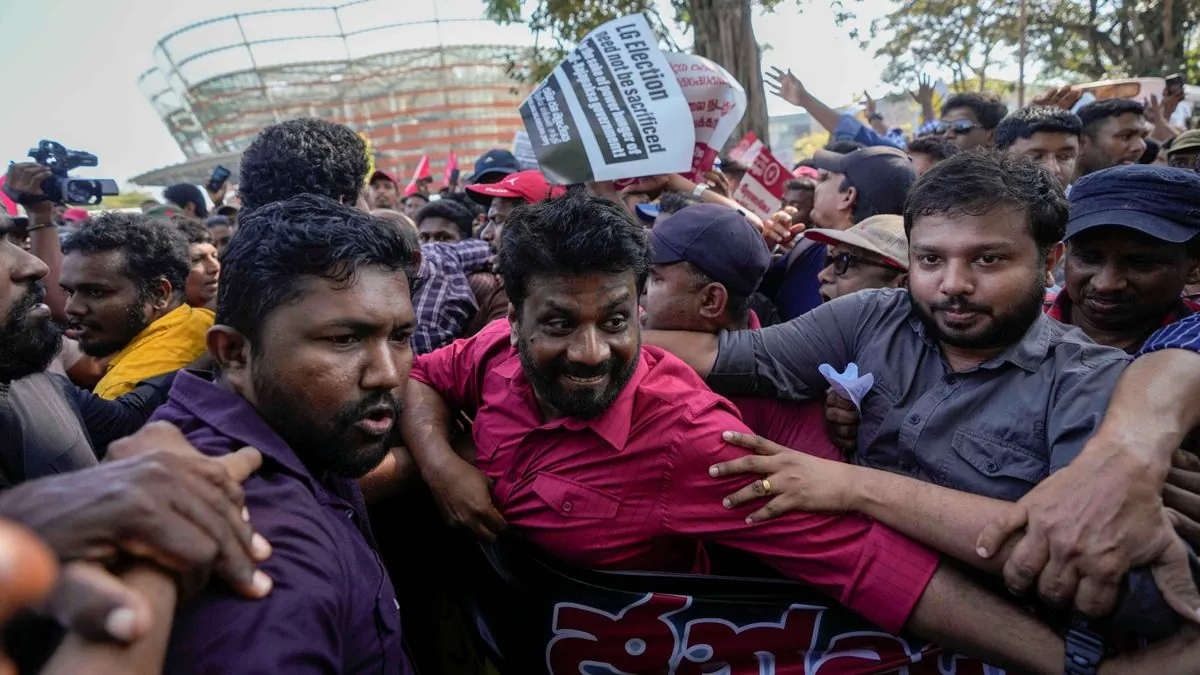Dissanayake Emerges as Top Contender in Sri Lanka's Presidential Race
Anura Kumara Dissanayake leads polls in Sri Lanka's upcoming presidential election, promising anti-corruption measures and welfare schemes. His leftist policies and outsider status challenge traditional political dynasties.

In the lead-up to Sri Lanka's presidential election on September 21, 2024, Anura Kumara Dissanayake has emerged as a frontrunner, challenging the country's established political order. Dissanayake, representing the National People's Power (NPP) alliance, has gained significant support despite his party's limited presence in parliament.
Dissanayake's campaign has resonated with voters through promises of stringent anti-corruption measures and expanded welfare programs. An opinion poll conducted earlier this month placed him at the forefront with 36% of voting preferences, surpassing established political figures such as opposition leader Sajith Premadasa and incumbent President Ranil Wickremesinghe.
Unlike his main competitors, Dissanayake does not hail from a prominent political dynasty. This contrast is particularly stark in a country where family connections have long dominated the political landscape. Sajith Premadasa is the son of a former president, while Wickremesinghe has familial ties to past leaders. Namal Rajapaksa, son of two-time president Mahinda Rajapaksa, has also entered the race.
Dissanayake has capitalized on this distinction, stating at his final rally: "There are people who think their family power will win this election but on Sept. 21, that family power, financial power, media power and state power will be defeated by people's power."

The candidate's Janatha Vimukthi Peremuna (JVP) party, which forms part of the NPP alliance, has a complex history. The party led two unsuccessful insurrections in 1971 and 1988, resulting in significant loss of life. However, it has since transitioned to mainstream politics, with Dissanayake, who was not in leadership during those events, focusing on current issues rather than past actions.
Dissanayake's economic proposals have raised concerns among investors and market analysts. His manifesto suggests revising the debt restructuring program central to the International Monetary Fund's $2.9 billion bailout and proposes tax reductions that could impact fiscal targets. However, during his campaign, Dissanayake has adopted a more moderate stance, pledging to consult with the IMF on any changes and committing to debt repayment.
"He has been in politics for a while and is not a newcomer. He is appealing to people looking for something different. He is a newer face and he knows how to speak to people on what they are going through."
Dissanayake's campaign has focused on presenting himself as an agent of change in Sri Lankan politics. He has promised to dissolve parliament within approximately 45 days of taking office and to seek a fresh mandate in general elections for his policies.
Sri Lanka, an island nation of 22 million people, has faced significant challenges in recent years. The country experienced a severe economic crisis in 2022, leading to widespread protests and the ousting of then-President Gotabaya Rajapaksa. This backdrop has contributed to the appeal of Dissanayake's message of change and anti-corruption.
The upcoming election features 38 candidates, with voters allowed to cast three preferential votes. A candidate must secure 50% of the votes to win outright; otherwise, a second round of counting using preferential votes determines the winner between the top two candidates.
As Sri Lanka approaches this crucial election, the country faces the challenge of balancing economic recovery with political reform. With its rich history and diverse population, the nation seeks a leader who can address both immediate concerns and long-term development goals.


































